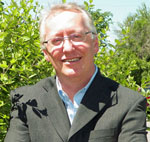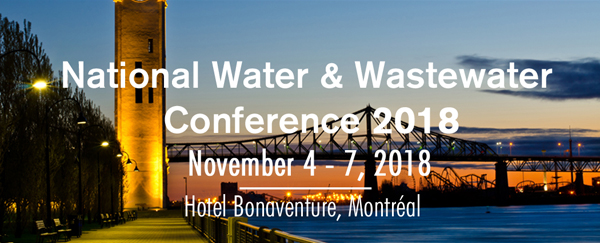 |
||||||||||||||
| Subscribe | Past Issues | www.cwwa.ca | Water Source Magazine | ||||||||||||||
|
CWWA News
Being your advocate on national water issues is the main reason CWWA exists as an association. One of the key ways we fulfill that task is with our Window on Ottawa event. We just completed another successful event and were pleased to invite our members from across Canada to two solid days of dialogue. We're excited to announce that online registration and our exhibitor and sponsorship prospectus are now available online! The preliminary program is also posted to the website, offering a snapshot of the event, and the draft technical program, which is constantly being updated as we finalize our climate change, utility leadership and utility security sessions.
CWWA’s Annual Window on Ottawa was held June 5-6. This year we tried a new venue – the Lord Elgin Hotel – offering our delegates closer access to the heart of the city. We also tried to renew the program, with more panel discussions and we heard from new voices on the national water scene, along with the important federal departments that are always a cornerstone of this important event.
The National Committee on Climate Change has been active this year on Collaboration, Representation, and Organization. Once again we have had the opportunity to collaborate with a wide range of partners on initiatives of national interest including research prioritization for urban flooding under a changing climate, national flood resilience guidelines and standards, and responses to requests from federal agencies and departments. We have also represented the water and wastewater sector at various national working groups and collaboratives of professional associations and, of course, been actively organizing the Climate, Risk, and Resilience streams in the Window on Ottawa and National Water and Wastewater Conference events. Member News
Both the Senate and House Appropriations committees have directed the Environmental Protection Agency (EPA) to continue funding the highly successful WaterSense® program, a voluntary public-private partnership that has saved American consumers more than $46 billion on their water and energy bills since 2006. Federal Initiatives
Environment and Climate Change Canada has commenced consultations on the proposed amendment of Schedule 1 of the Species At Risk Act (SARA) resulting from assessments of 21 terrestrial species. Environment and Climate Change Canada (ECCC) is considering two changes to how facilities report releases of pollutants to water: 1. Develop an effluent volume reporting threshold to determine if a facility must report releases of National Pollutant Release Inventory (NPRI) substances to water; and Environmental assessment has always been arbitrary and political and the federal government’s proposed changes (contained in Bill C-69) do nothing to change that, argues a new report released on May 31, 2018, by the Fraser Institute, a selfdescribed independent, non-partisan, Canadian policy think-tank. Recently, the Honourable Ralph Goodale, Minister of Public Safety and Emergency Preparedness, the Honourable Harjit S. Sajjan, Minister of National Defence, and the Honourable Navdeep Bains, Minister of Innovation, Science & Economic Development delivered the National Cyber Security Strategy. This new strategy will guide the Government of Canada’s cyber security activities to safeguard Canadians’ digital privacy, security and economy. Snippings & Clippings
Water Onlline A new research study links the use of oil and gas wastewater to the spread of air and water pollution. Water Canada The Great Lakes Commission (GLC) has launched ErieStat, a website that tracks progress toward the binational shared goal of reducing phosphorus in Lake Erie by 40 per cent, and reports how much of the nutrient is entering the lake from select rivers. Water Canada Yesterday, the Office of Canada’s Auditor General, Michael Ferguson, released his 2018 spring reports. Report 5 indicated that Indigenous Services Canada (ISC) has failed to make sufficient use of available data to overcome issues in First Nations communities, including with respect to water resources. Water Innovations The idea that ratepayers are afraid of what advanced metering infrastructure (AMI) may bring into their homes has made water utilities wary of implementing the technology. But are the fears justified? A new survey investigates the phenomenon and lights a path forward. Water Innovations Growing cities are generating higher volumes of wastewater and putting a strain on clean water supplies, calling for solutions that extract value from “waste” and ensure the sustainability of resources with the added bonus or imperative of protecting the environment. CBC Radio In August of 2014, the southern Ontario city of Burlington — just west of Toronto — was hit by a torrential storm, causing severe flooding that wreaked havoc on the homes of its residents. The flood changed everything: from the city budget, to home renovations where thousands of people realized that climate change was happening right below them. People described sewage spewing like a fountain from their basement drains. |
||||||||||||||










